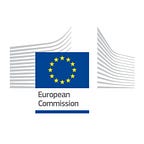Providing counselling and health services to women refugees in Turkey
According to the United Nations Population Fund there are 900,000 women and girls of reproductive age living as refugees in Turkey. The EU funds specialised health services to address their needs.
“Before I received help from the counsellors working at this centre, I was in despair,” explains Aisha*, a young mother of two children. At the age of 20, she is already a mother of two and had to endure an abusive marriage. “When my husband and I fled Syria four years ago, I was 8 months pregnant and we had to walk through the winter snow to cross the border into Turkey.”
Turkey is host to the largest refugee population in the world; nearly 4 million people have fled to Turkey due to conflict in their home countries. Of that number, more than 3.5 million are from Syria. Aisha is just one of the millions of Syrians who have sought refuge in Turkey in the past seven years, fleeing the seemingly endless conflict in Syria.
Over 95 percent of the Syrian refugee population have settled in local communities throughout the country. Turkey provides free primary and secondary education and healthcare, along with other social assistance to refugees. However, due to the scale of the needs posed by millions of refugees, the EU decided to provide €6 billion known as the “Facility for Refugees in Turkey” to support the Turkish efforts.
While EU projects help address basic needs of the refugees through such projects such as the Emergency Social safety Net (ESSN), the largest single humanitarian cash transfer project in the world, one critical aspect that EU-funded projects try to address is the protection needs of refugees, in particular women and girls.
According to the United Nations Population Fund (UNFPA) there are 900 000 women and girls of reproductive age living as refugees in Turkey. These women are vulnerable to gender-based violence including sexual violence, early and forced marriage, high risk of unwanted pregnancies, and other reproductive risks.
The EU therefore supports humanitarian partners such as UNFPA in providing complementary services inside government-run migrant health centres. These centres help cover the significant gap that exists in services related to reproductive health and psychosocial support. Through its Civil Protection and Humanitarian Aid Operations (ECHO), the EU has funded these services in 25 locations since September 2017.
“The most common issues I see are trauma and violence,” explained Najdin Askar, a psychologist at one of the centres. “Some of it is violence triggered by conflict. Others were subjected to violence by their husbands before the war. Others are experiencing financial hardships that increase stress and violence.”
For Aisha and her family the stress of exile, the language barrier and the daily struggle to find enough money to survive were constant issues. Aisha managed to learn some Turkish and started to engage with her neighbours.
“My husband became increasingly angry with me,” she explains. “He wanted me to stay at home and look after our children, but I wanted to try and learn Turkish and find work to support our family.”
Finally they settled in Izmir where Aisha’s parents had also been able to find housing. While the coastal city is well-known for its historical sites and tourist beaches, it also hosts more than 150 000 registered and unregistered refugees.
Aisha passed by the migrant health centre which provides free primary healthcare to refugees and she met some of the staff, many of whom are also from Syria. They suggested that she speak to the staff of the women and girls’ safe space located inside the centre who could provide her with more information on assistance available to refugees.
Counsellors work with those facing gender-based violence to find appropriate solutions. “Shelters can be made available, protection can be arranged. But if the wife wants to stay with her husband, social workers get involved and intervene with the husband,” Najdin Askar explains.
The centres also conduct information sessions on gender-based violence, gender equality, harmful practices such as child marriage, and advice on how to receive assistance.
Yet many women are afraid to seek help.
“Women don’t want to be seen coming here. They cover up and only reveal their faces in the privacy of the consultation room,” psychologist Besime Yayuz said.
“Many women do not recognise their experiences as abuse,” said Sevda, a social worker. “Physical violence they know is wrong. But they are often unaware of other forms of violence, such as economic violence or restricting freedom.”
For Aisha this assistance opened up a whole new world. “I was able to improve my Turkish language skills and participate in many different courses,” she explains.
“I want to work so I can fulfil my dream of furthering my studies,” Aisha explains. Through advice and counselling, she was able to overcome her fears and she finally filed for divorce and moved with her children into her parents’ apartment in Izmir.
Since then her life has steadily improved. “I continued to attend counselling sessions to overcome my experiences and attend a number of courses, and now I even work as a mediator in supporting social service centres run by the [Turkish] authorities.”
Aisha has now joined many Syrians who have survived their ordeals and contribute to their new communities.
By Mathias Eick, Regional Information Officer, European Civil Protection and Humanitarian Aid Operations (ECHO)
- Learn more about the EU’s humanitarian work in Turkey.
- Visit our website to find out more about our work across the world.
- Follow us on Twitter @eu_echo.
*Name changed to protect identity
